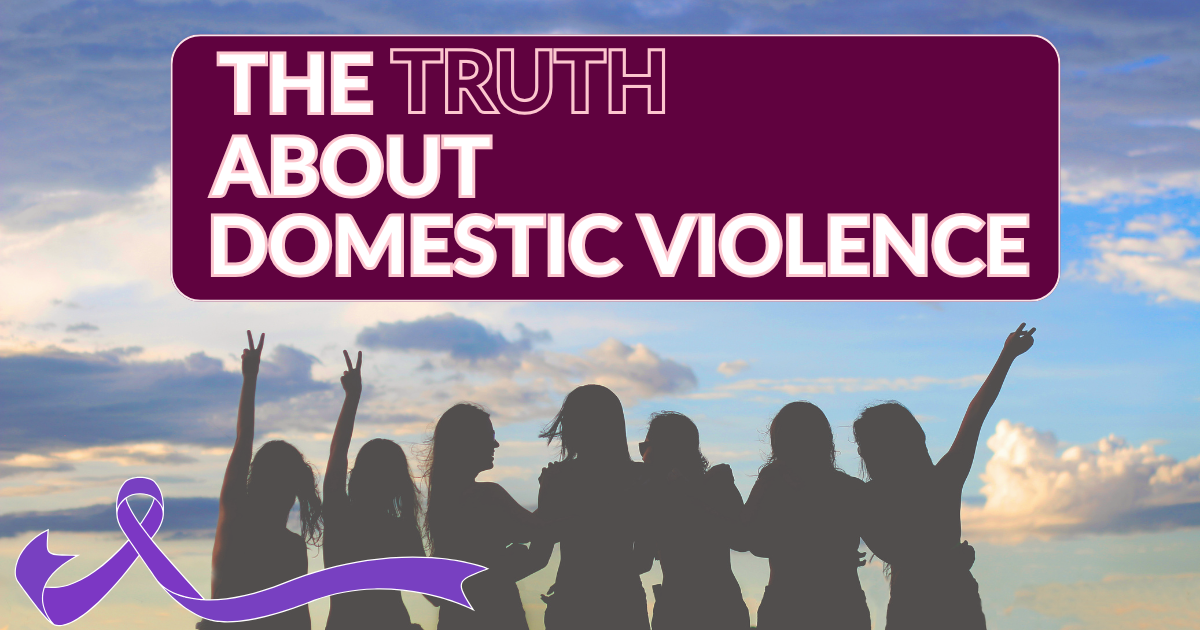What is Domestic Violence?
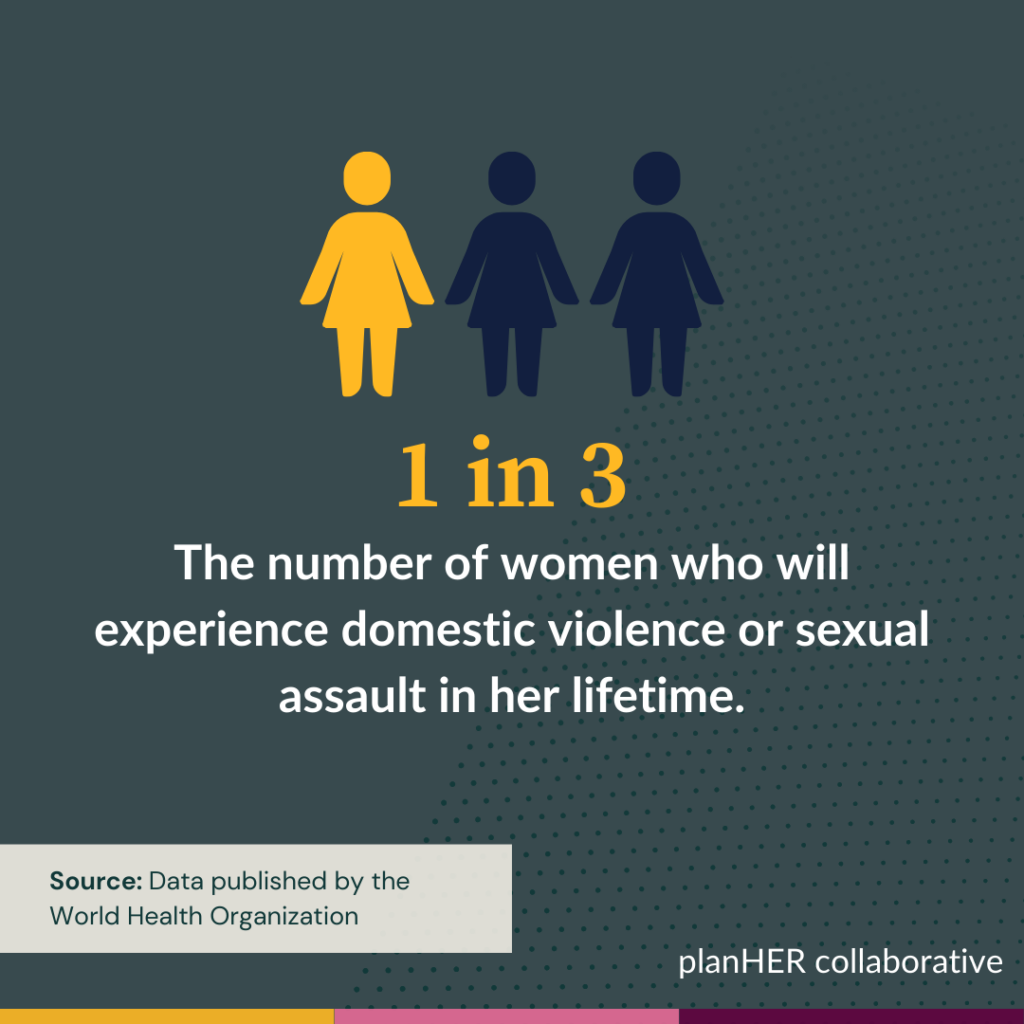
Domestic violence is a pattern of abusive behaviors used to gain or maintain power and control over a partner.
🚩 Abuse isn’t always physical. It often shows up as threats, manipulation, humiliation, and blame.
🚩The person who is violent chooses violence. They are NOT “out of control.”
🚩 Abuse is about control, NOT love.
🚩 Domestic abuse can happen to anyone regardless of race, age, gender identity, sexual orientation, religion, income, or education level. Read that again 👉 ANYONE.
🚩 Domestic violence occurs in all kinds of relationships, whether you’re dating, living together, married, or anything in between. It is not limited to one type of person or relationship. It’s also called “intimate partner violence” (IPV) or “partner abuse.”
🚩 Coercive control is the thread that runs through most abusive relationships.
What is Coercive Control?
Coercive control is a repeated, calculated pattern of behavior that abusers use to dominate their partner and strip away their freedom. These behaviors are used strategically to dominate, diminish, and destabilize. And they are abuse.
👉 Coercive control is a partner isolating you from your friends. It’s financial dependence that keeps you stuck. It’s constant tracking, financial control, checking your phone, controlling who you talk to, what you wear, or where you go. It’s manipulation that makes you question your reality. Sometimes it is physical violence.
How to spot it
Understanding abuse and the many types won’t just help you spot warning signs, it also gives you the clarity to name it, the language to talk about it, and the strength to respond to situations in the best way for you.
You deserve safety, respect, and autonomy. Let’s talk about what abuse really looks like. 👇
Verbal & Emotional Abuse
Emotional and verbal abuse are non-physical behaviors used to manipulate, belittle, isolate, or intimidate.
You don’t need bruises to be deeply harmed. This is abuse and it’s never okay.

Financial Abuse
Money is often used as a tool of control. Financial abuse involves making a person financially dependent by maintaining total control over financial resources.
It can be subtle or loud, but either way, it traps someone in a harmful relationship by taking away their financial independence.
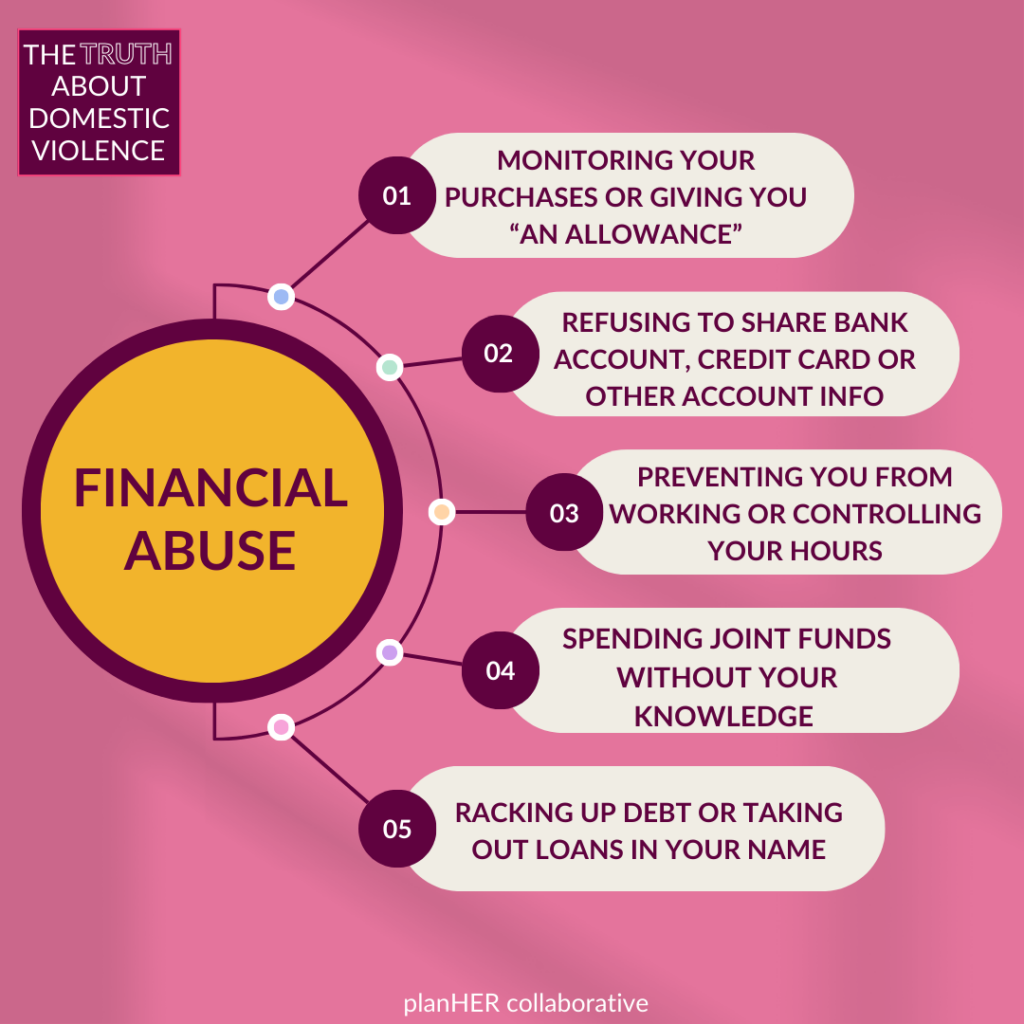
Sexual Abuse
Sexual abuse is behavior that pressures or coerces someone to do something sexually that they don’t want to do. It is behavior that impacts someone’s sexual autonomy – their ability to control their sexual activity, their contraception methods, or the circumstances in which sexual activity takes place.
Sexual abuse isn’t always violent or forceful and most victims know their abuser.
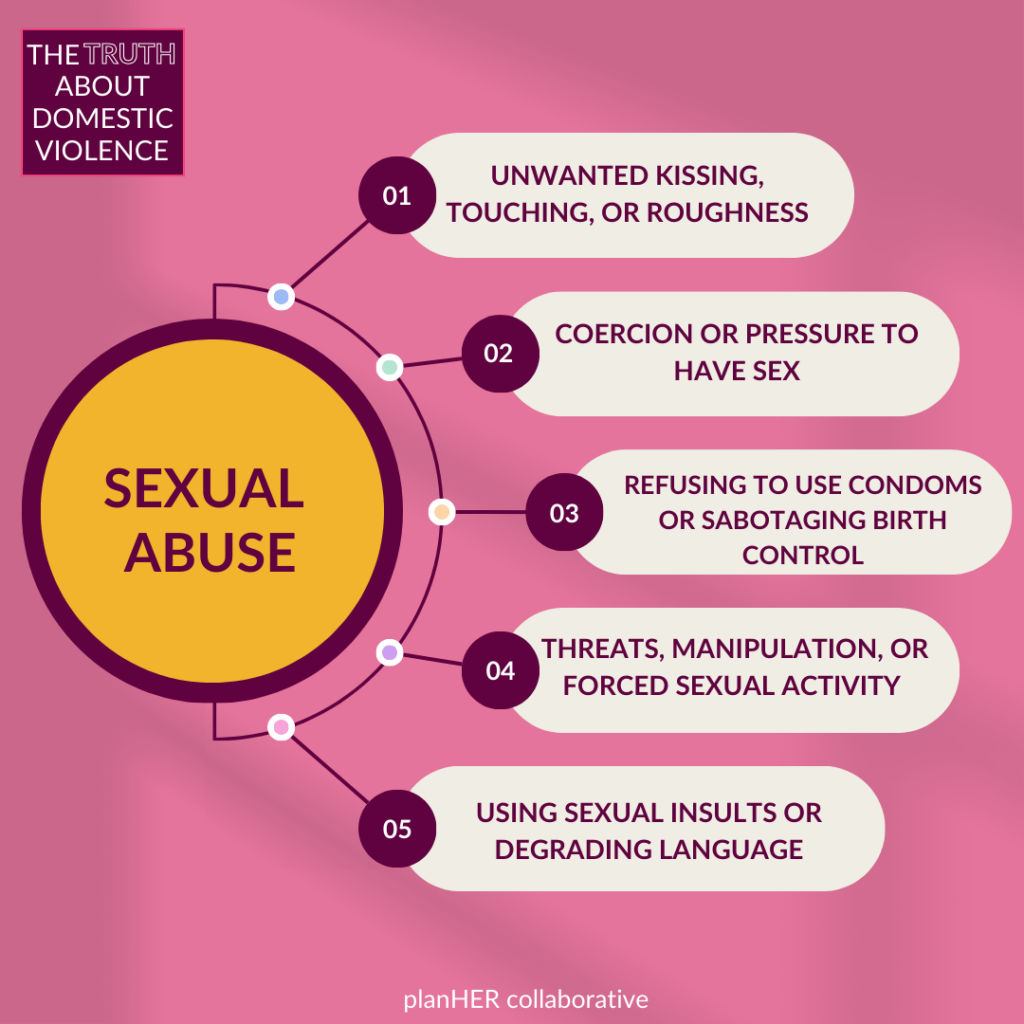
Digital Abuse
Digital abuse uses technology (think texts, emails, social media, tracking devices, and GPS) to control, monitor, harass, and intimidate a partner. It’s often verbally or emotionally abusive behavior conducted online.
Healthy communication respects your boundaries, on and offline.
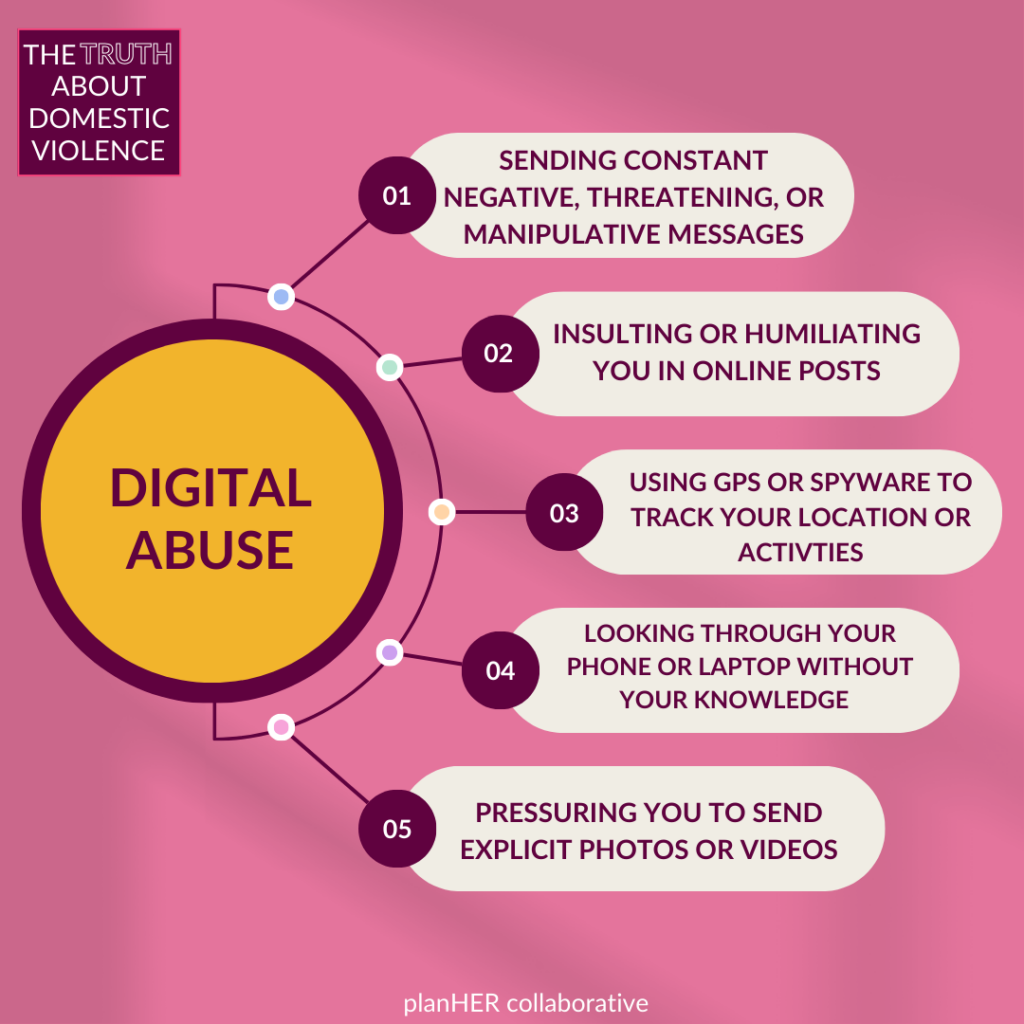
Physical Abuse
This is often the most recognized form of abuse and what most people still picture when they hear “domestic violence.”
Physical abuse includes all physical behavior meant to harm, intimidate, or control a partner.
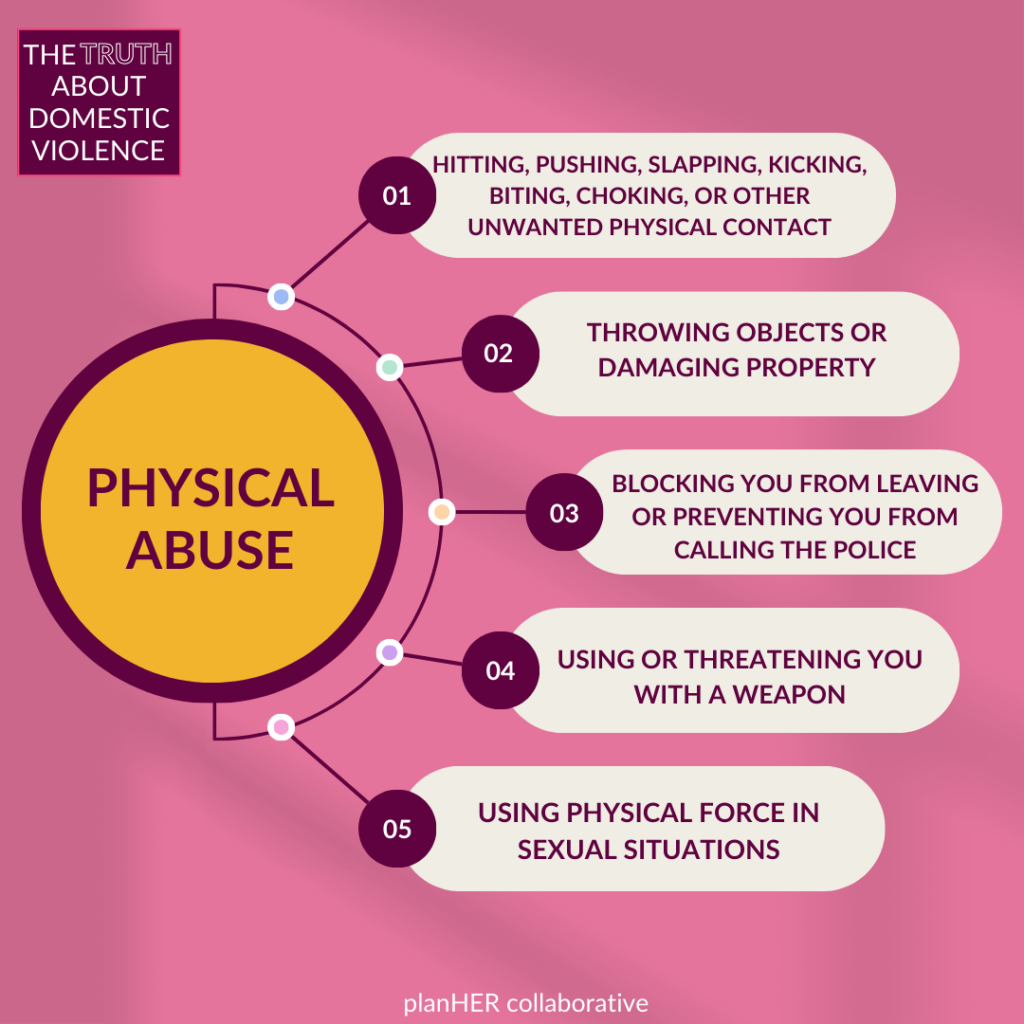
Religious or Spiritual Abuse
Religious abuse happens when someone uses faith, doctrine, or spiritual beliefs to control, shame, or silence their partner. It’s often less talked about, but still incredibly damaging.
This kind of abuse may be especially painful because it twists what’s supposed to be sacred into something that feels suffocating.

Stalking
Stalking is repeated, unwanted attention that causes fear. It can be watching, harassing, or following you and it is done to intimidate you.
Stalking is NOT about love. It is about power and control and it is a threat to your safety.
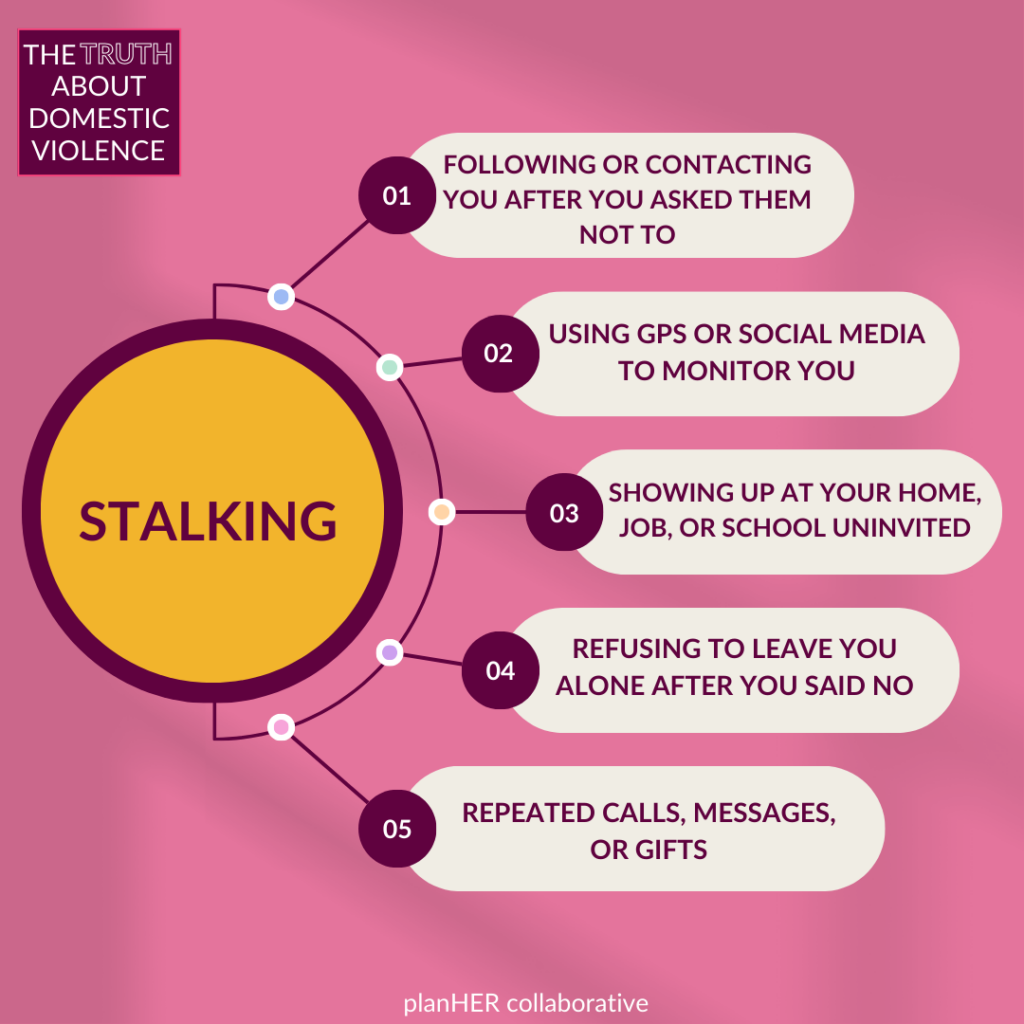
You Are Not Alone
💜 You deserve respect. 💜 You deserve peace. 💜 You deserve to feel safe, body, heart, and mind.
If any of these behaviors ring true or give you that “ick” feeling in your gut (even just one or two), it may be a red flag that abuse is present in your relationship.
You are not imagining things. You are not “too sensitive.”
Your gut, heart, and mind are telling you everything you need to know.
💜 Here’s how to get help –
Call your local police for immediate assistance and safety.
Create a “Safety Plan” for yourself. Learn more about Safety Plans here.
💜 PlanHER Collaborative is fiercely committed to supporting women. 💜
